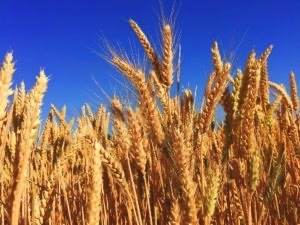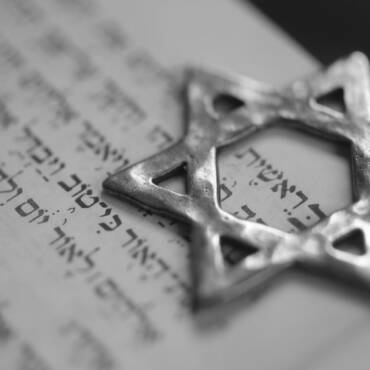The Feast of Pentecost

By Sam Nadler
Pentecost means “fiftieth (day)”, a word used to translate the Hebrew Shavuot. This holiday had to come to its fulfillment fifty days after Messiah’s resurrection. For the traditional Jewish community, Shavuot was first celebrated around the time of receiving the Torah at Mount Sinai, about fifty days after leaving Egypt (Exodus 19:1). Therefore, Shavuot is called “The Season of the Giving of the Law.” It is also considered the spiritual birthday of Israel since the Torah brought twelve tribes together into one corporate people. From Shavuot’s fulfillment in Acts 2 we can also call it, “The Season of the Giving of the Spirit” since the Holy Spirit makes all believers, from many tribes, into one family in Messiah. Happy Birthday, Body of Messiah!
During Shavuot the firstfruits offering was presented before the Lord. The sacrificial offerings were all meant to point to the Messiah and His fulfillment of them. The heart of the Good News is that Yeshua died for our sins.
How Many Firsts?
As we read, regarding the special Shavuot meal offering, we see that it is also called “Firstfruits to the Lord” (Leviticus 23:17). However, we noted that there was already a firstfruits offering earlier during the week of Passover. Now there is a second firstfruits offering? At some point, one might think, shouldn’t it be called “secondfruits?” Not at all. Remember, the earlier firstfruits offering was presented the day after the Sabbath of Passover week (Leviticus 23:10-14). This was the firstfruits offering of the barley harvest, considered the poor man’s food.
The second firstfruits offering was from the wheat harvest (Exodus 34:22), the rich man’s food (Psalm 81:16). As you will see, Messiah became poor that we might become spiritually rich in Him (2 Corinthians 8:9).
The earlier firstfruits offering pictured Messiah as our “Firstfruits offering” from the dead (1 Corinthians 15:21-23). However, the second firstfruits offering is a picture of the believers in Messiah made into His body at Shavuot in Acts 2.
We are a second firstfruits offering to Yeshua. This is referred to in the book of James 1:18, “In the exercise of His Will, He brought us forth by the word of truth, so that we would be a kind of firstfruits among His creatures.”
If Yeshua is the Firstfruits offering of the resurrection, so also, we are a firstfruits offering in His new creation, the Body of Messiah. We learn in Ephesians that Messiah is the head, and we are the body (Ephesians 1:23; 4:15-16). Along with the privileges of being God’s firstfruits also came responsibilities, as we read in Luke 12:48, “to whom much is given, much is required.”
Consequently, we are expected to live in such a way that the Lord is honored in all that we do. This is why the Holy Spirit was given – to empower all believers in Yeshua to follow Messiah. The ultimate fulfillment of Shavuot firstfruits are New Covenant believers. When the Spirit of God came upon them in Acts 2, He made them into His firstfruits (James 1:18). Similarly, believers today are people of both privilege and responsibility to live faithfully for the Lord. Through faith in Messiah, we have eternal salvation and new life as children of God.
What a privilege to have the enablement of the Holy Spirit to live dedicated and holy lives to the glory of God. Though there is “no condemnation to those in Messiah” (Romans 8:1), there is chastening and discipline from the Lord for every child of His, that we might grow in righteousness (Hebrews 12:6-8).
As Believers we are to present ourselves for God’s use only. We experience His spiritual blessings when we yield ourselves to the Lord, and in living for Him, fulfill His purpose for us.
Just as Yeshua was accepted as the Firstfruits of Passover, we are accepted by God as the firstfruits of Pentecost. Therefore, we are to live out that acceptance and love of God, having confidence that we are dedicated to God’s use, only. When we put God first in our lives, we testify to the world that we belong to Him.
Adapted from the book Messiah in the Feasts of Israel.



